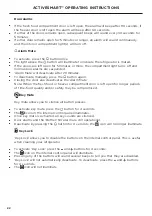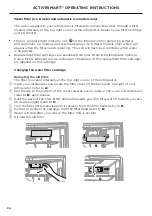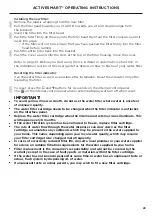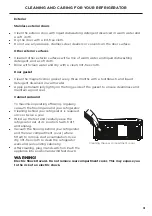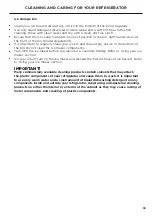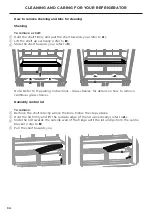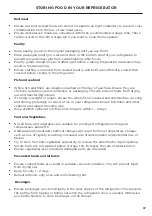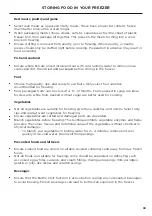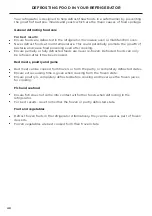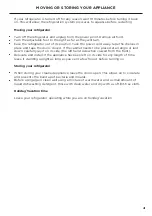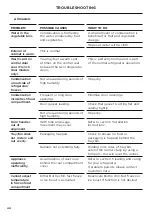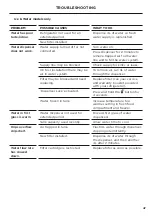
36
STORING FOOD IN YOUR REFRIGERATOR
Your refrigerator helps to extend the storage times of fresh perishable foods. The cold
temperature slows down the major causes of food spoilage, particularly the growth of
bacteria, moulds and yeasts causing chemical and physical reactions.
General fresh food storage
The quality of food before it is placed in the refrigerator is critical to successful storage.
For best results:
●
●
Store only fresh, high quality food
●
●
Buy only the amount that you will use within the recommended storage time. If you buy
extra freeze it.
●
●
Make sure you wrap your food in suitable packing materials before storing in the
refrigerator.
– This keeps the foods fresh and prevent dehydration, colour deterioration, loss of
flavour, and transfer of odour.
– Fruits and vegetables can be stored in vegetable bins and do not need to be
wrapped.
●
●
Store perishable foods in the refrigerator immediately after purchase. This will prolong
their shelf life. Storing at room temperature increases the rate of deterioration.
●
●
Avoid placing food directly in front of air outlets. This will prevent the food from
freezing and ensure cold air is circulated efficiently.
●
●
Keep door openings to a minimum. Avoid opening the door unnecessarily
●
●
Ensure hot foods and drinks are cooled sufficiently before placing them in the
refrigerator.
●
●
Hot foods may cause other foods to warm to unsafe temperatures. If in contact with
plastic components of your refrigerator, hot containers may cause damage. Additionally,
hot foods may cause an in increase in energy consumption
●
●
Ensure raw and cooked foods are stored in separate air tight containers to prevent cross
contamination. Store raw foods on the bottom shelf of the refrigerator.
●
●
Keep the refrigerator clean by frequently wiping the inside walls and shelves (refer to
‘Cleaning and caring for your refrigerator’ section).
●
●
Regularly check the quality of food in your refrigerator.
– Discard food that shows signs of spoilage
– Protein rich foods (meats, fish, poultry) deteriorate faster than others
– Use foods within the recommended storage times
Dairy foods and eggs
●
●
Store eggs in the covered door shelves of the refrigerator or in their carton as the
porous egg structure is susceptible to absorbing odours.
●
●
It is ideal to use room temperature eggs when using it for baking. Make sure you take
out the eggs from the refrigerator 2 hours before using them.
●
●
Ensure pre-packed dairy products stamped with recommended ‘use by/best before/best
by’ dates are consumed within the recommended storage time.
●
●
Ensure dairy products are stored in their original packaging until ready to consume.
Once opened, wrap them in suitable packing material eg cling film to avoid transfer
of odour.

